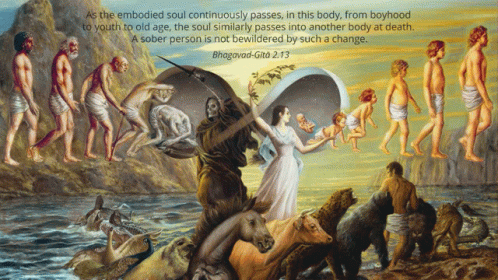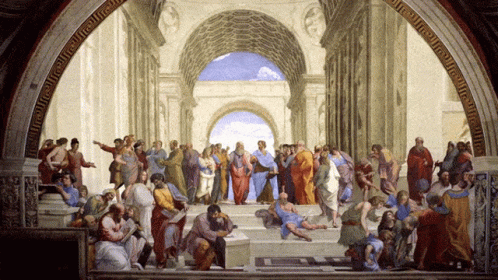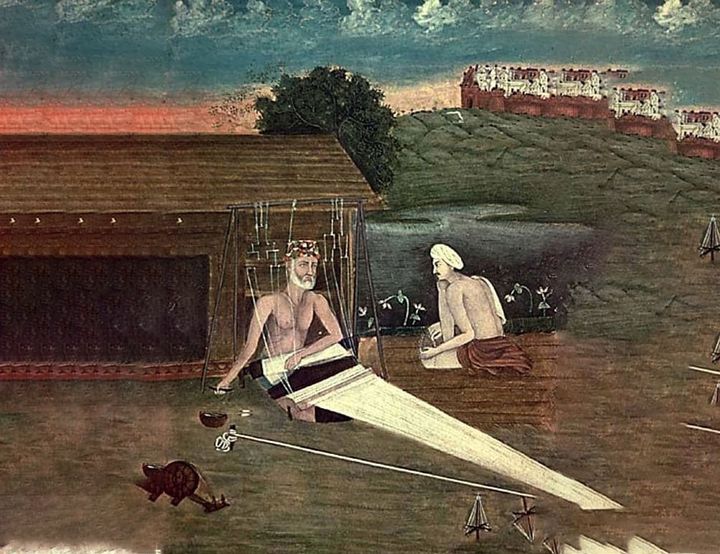What Did The Greatest Thinkers & Spiritual Teachers Who Ever Lived Have To Say About Death?
The views of death from the greatest thinkers and spiritual teachers and the wisdom they share to live a life of meaning and purpose.

The Timeless Quest Understanding Death from West to East, from Socrates to Confucious"
Do the Masters Have a Different view on Death than the Masses?
Death escapes no one, it has been addressed by philosophers throughout history and has been a topic of great spiritual inquiry. The greatest thinkers have made significant contributions to the study of grief and death. The universal truth has always been in the hands of the masters, not the masses. These are their insights.
East Vs West view on Death and Grief
Death and grief have been written extensively, the major differentiator has been weather it is written from transformation or loss? The vast majority the greatest thinkers be it from the East or West have leaned towards transformation, while religions and cultures have perpetuated loss. Although there is a wide range of perspectives on death, including views on the natural cycle of mortality, the meaning of life in relation to death, and the emotional impact of death. Some have argued that death is simply the end of life and nothing more, while others have suggested that death may be a gateway to some other form of existence or a transformative experience.
Some have argued that death is a natural and inevitable part of life, while others have suggested that it is something to be feared or lamented. Still, others have argued that death can be a source of meaning or enlightenment. Time to form your own opinion by studying the greats. Seeing the power of syncretic philosophy allows you to develop your understanding a universal and timeless perspective to overcome the fear and grief behind death.

Eastern Philosophers
The founders of eastern religions and philosophers taught that death is about change and transformation. That all things are energy, and energy cannot be created nor destroyed it just changes shape and form. The interpretation of this is has been lost and misunderstood, as many of these names are often quoted but rarely read. The celestial mysteries have been lost among the terrestrial histories. The aim of Griefopedia is to transform how the world grieves through articles and workshops. There is a commonality among the wisdom of the ages, we hope the greatest thinkers allow you to experience it without the ageing process.
- Lao Tzu: Lao Tzu was a Chinese philosopher and the author of the Tao Te Ching, a classic text of Taoist philosophy. He believed that death was a natural and inevitable part of the cycle of life, and that it was important to accept death and live in harmony with the natural world.
- Confucius: Confucius was a Chinese philosopher and the founder of Confucianism. He believed that death was a natural and inevitable part of the cycle of life, and that it was important to live a virtuous and fulfilling life while one was alive.
- Guru Nanak was the founder of Sikhism. He believed that death was a natural and inevitable part of the cycle of life and that it was important to embrace death to understand a higher state of being. Guru Nanak taught that the ultimate goal of life was to attain liberation from the cycle of death and rebirth and that this could be achieved through the realization of one's true nature as a divine being. He emphasized the importance of living a virtuous life of service and being of the world while understanding where is got not.
- Buddha: The Buddha was an Indian philosopher and the founder of Buddhism. He believed that death was a natural and inevitable part of the cycle of life, and that it was essential to embrace death and live in a way that brought peace and enlightenment.
- Rumi: Rumi was a Persian mystic and poet who is considered one of the greatest spiritual masters of all time. He believed that death was a natural and inevitable part of the cycle of life and that it was important to embrace death as a gateway to a higher state of being.
- Kabir: Kabir was an Indian mystic and poet who is considered one of the greatest spiritual masters of all time. He believed that death was a natural and inevitable part of the cycle of life and that it was important to embrace death as a gateway to a higher state of being.
- Zoroaster: Zoroaster was the founder of Zoroastrianism, a monotheistic religion that originated in ancient Persia. He believed that death was a natural and inevitable part of the cycle of life and that it was important to live a virtuous and fulfilling life while one was alive. Zoroaster taught that the soul was immortal and that it would be judged after death based on the individual's actions in life.
Eastern Religions and Schools of Thought on Grief, Loss & Death
- Jainism: Jainism is an ancient Indian religion that emphasizes non-violence and the concept of ahimsa, or non-harm. Jain philosophers believe that death is a natural and inevitable part of the cycle of life and that it is important to embrace death as a gateway to a higher state of being. Jainism teaches that the soul is eternal and that it will be reborn after death based on the individual's actions in life.
- Hinduism: Hinduism is a major world religion that originated in ancient India. Hindu philosophers have offered a wide range of views on death, including the belief that death is a natural and inevitable part of the cycle of life, and that it is important to embrace death as a gateway to a higher state of being. Hinduism teaches that the soul is eternal and that it will be reborn after death based on the individual's actions in life.
- Taoism: Taoism is a Chinese philosophical and religious tradition that emphasizes living in harmony with the natural world. Taoist philosophers believe that death is a natural and inevitable part of the cycle of life, and that it is important to accept death and live in harmony with the natural world. Taoism teaches that the soul is eternal and that it will be reborn after death based on the individual's actions in life.
- Buddhism: Buddhism is a major world religion that originated in ancient India. Buddhist philosophers believe that death is a natural and inevitable part of the cycle of life, and that it is important to embrace death as a gateway to a higher state of being. Buddhism teaches that the soul is eternal and that it will be reborn after death based on the individual's actions in life.
- Confucianism: Confucianism is a Chinese philosophical and religious tradition that emphasizes virtue, morality, and filial piety. Confucian philosophers believe that death is a natural and inevitable part of the cycle of life, and that it is important to live a virtuous and fulfilling life while one is alive. Confucianism teaches that the soul is eternal and that it will be judged after death based on the individual's actions in life.
- Shinto: Shinto is a Japanese indigenous religion that emphasizes the worship of ancestral spirits and natural deities. Shinto philosophers believe that death is a natural and inevitable part of the cycle of life, and that it is important to respect and honor the ancestors. Shinto teaches that the soul is eternal and that it will be reborn after death, though the specifics of this belief vary among different schools.
- Zoroastrianism: Zoroastrianism is a monotheistic religion that originated in ancient Persia. Zoroastrian philosophers believe that death is a natural and inevitable part of the cycle of life, and that it is important to live a virtuous and fulfilling life while one is alive. Zoroastrianism teaches that the soul is immortal and that it will be judged after death based on the individual's actions in life.
- Sikhism: Sikhism is a monotheistic religion that originated in the Indian subcontinent. Sikh philosophers believe that death is a natural and inevitable part of the cycle of life, and that it is important to embrace death as a gateway to a higher state of being. Sikhism teaches that the soul is eternal and that it will be reborn after death based on the individual's actions in life.
- Taoism: Taoism is a Chinese philosophical and religious tradition that emphasizes living in harmony with the natural world. Taoist philosophers believe that death is a natural and inevitable part of the cycle of life, and that it is important to accept death and live in harmony with the natural world. Taoism teaches that the soul is eternal and that it will be reborn after death based on the individual's actions in life.

Western Philosophers on Death - Exploring the Insights and Perspectives
From Socrates to Jean-Paul Sartre: Each great thinker has shared their insights and perspectives to provide insights for others on their path through the stages of grief and recovery. Exploring the range of beliefs helps us all grapple with the inevitability of death and disease in hopes we can live, healthy vital and purposeful lives. This is a deep dive into the great minds that assist and help you with meaning and significance when dealing with end-of-life matters.
Socrates: Socrates believed that death was not something to be feared, as it was simply the end of the physical body and the beginning of the soul's journey to the afterlife. He argued that the only thing that was truly important was living a virtuous and just life.
Plato: Plato believed that the soul was immortal and that it existed before and after the body. He argued that death was a natural part of the cycle of life and that it should be accepted as such.
Aristotle: Aristotle believed that death was a natural and inevitable part of life, and that it was the end of the individual's time on earth. He argued that the only way to achieve true happiness was to live a virtuous life and to cultivate the virtues of reason, wisdom, and contemplation.
Epicurus: Epicurus argued that death was nothing to be feared, as it was simply the end of the individual's consciousness and there was no afterlife. He believed that the only thing that mattered was living a happy and fulfilling life while one was alive.
Seneca: Seneca believed that death was a natural and inevitable part of life, and that it was something to be accepted and embraced rather than feared. He argued that it was important to live a virtuous life and to cultivate the virtues of wisdom, courage, and self-control.
John Locke: John Locke believed that death was a natural and inevitable part of life, and that it was something to be accepted with resignation and grace. He argued that the only thing that mattered was living a virtuous and fulfilling life while one was alive.
Immanuel Kant: Immanuel Kant believed that death was a natural and inevitable part of life, and that it was something to be accepted with resignation and grace. He argued that the only thing that mattered was living a virtuous and fulfilling life, and that death was simply the end of the individual's time on earth.
Arthur Schopenhauer: Arthur Schopenhauer believed that death was a natural and inevitable part of life, and that it was something to be accepted with resignation and grace. He argued that the only thing that mattered was living a virtuous and fulfilling life, and that death was simply the end of the individual's time on earth.
Friedrich Nietzsche: Friedrich Nietzsche believed that death was a natural and inevitable part of life, and that it was something to be embraced rather than feared. He argued that death was a necessary part of the cycle of life and that it was important to live a meaningful and fulfilling life while one was alive.
Jean-Paul Sartre: Jean-Paul Sartre believed that death was a fundamental part of the human experience, and that it was something to be embraced rather than feared. He argued that death was a reminder of the finitude of life and the importance of living authentically and meaningfully.
Martin Heidegger: Martin Heidegger believed that death was a fundamental part of the human experience, and that it was something to be embraced rather than feared. He argued that death was a reminder of the finitude of life and the importance of living authentically and meaningfully.
Here are a few more philosophers who have written extensively on death:
Thomas Hobbes, John Donne, Thomas Browne, David Hume, Benjamin Franklin, Jean-Jacques Rousseau, John Stuart Mill, Henry David Thoreau, Søren Kierkegaard, Albert Camus, Blaise Pascal, George Berkeley, Emmanuel Kant, Arthur Schopenhauer, John Ruskin, Ralph Waldo Emerson, Friedrich Nietzsche, Georg Wilhelm Friedrich Hegel, Jean-Paul Sartre and Martin Heidegger

The Great Unifier - Death
Exploring the Philosophical & Spiritual Insights on Death
The greatest thinkers and philosophers have had a different view than the popular opinion and what's been taught to the mainstream. The only constant we will experience is the change and transformation of energy into different shapes and forms. If you find yourself struggling with grief or fear of death, reflect on what you've been taught about it. Many individuals struggle with death partially due to indoctrination in their religious and cultural beliefs. The more reward and punishment along with the separation of heaven and hell the greater the struggle.
Brilliant minds have reminded us, that you can't fear what you never experienced. You're adopting the story, beliefs and perceptions of others. Death is the most natural part of life and serves to remind us to live authentically and purposefully. When you tackle the fear of death you living purposefully, you've tackled the illusions and fantasies of life, while conquering the nightmares around death. What most people don't understand is that your fantasies and nightmares around death are one and the same. So many people live quiet lives of desperation rather than inspiration, because they are choosing pleasure over pain, happiness over sadness when in reality your will experience both. Nothing worth having has come easy in life, so lessons are there for the ones who initiate themselves on their life journey.
Everything is love, all else is Maya (An illusion).
Living meaningfully and doing the work to overcome grief and loss is just as difficult as not doing the deeper work and living your dreams. Either way, it will be difficult, but you have the choice to be stuck in grief or fear death or to take action.
Throughout history, great thinkers like these have grappled to understand death and have offered a wide range of insights and perspectives on this timeless and universal topic. While some Western philosophers, such as Socrates and Epicurus, have argued that death is not something to be feared and is simply the end of consciousness, others, such as Plato and Seneca, have believed in the immortality of the soul and the importance of living a virtuous life. Eastern philosophers, such as Lao Tzu, Buddha, and Guru Nanak, have similarly emphasized the natural and inevitable nature of death and the importance of accepting it and living in harmony with the natural laws of the universe. Ultimately, the philosophical and spiritual insights on death offer a way for individuals to come to terms with their own mortality and to find meaning and purpose in life.
Join Our Grief Workshop and Learn How to Process and Accept Death"
Learn the strategies and techniques for overcoming the pain grief and loss to find a sense of purpose and meaning so it doesn't run your life
Are you struggling with grief and looking for a resource and teachings you resonate with? Our workshop is led is designed to see you through the transformation and get you to an unconditional state of love rather than just cope and stay stuck in feelings and emotions so you can heal and love and appreciate deceased loved ones for their contribution to your life and do what they would wish for you; to live well and purposefully.
In this workshop, you'll have the opportunity to connect with others who are also experiencing grief and to learn from their experiences and insights. You'll also have the chance to work through your own grief journey in a supportive and non-judgmental environment.
So why wait? If you're ready to take the first step towards healing and discovering that unconditional state of being and appreciation. Don't let grief hold you back any longer.
Join Us & Dissolve Grief & Loss
A transformative timeless approach to dissolving grief in hours, not weeks, months, years or decades.








Comments ()